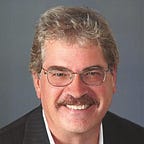Eleanor Engle — The Woman Who (Almost) Made Baseball History
How One Colorful Woman Came Close to Breaking Into Baseball in 1952
In 1952 what Eleanor Engle wanted to do more than anything was play professional baseball. Of course, such thinking was little more than fantasy. There were no women in baseball.
Sure, there was the All-American Girls Professional Baseball League which ran in the midwest from 1943 to 1954, but that was a ‘girls only’ league. No, in her heart of hearts, Eleanor Engle wanted to go further with the talent she had for playing baseball. To that end, fate did have more in store for her.
In June of ‘52 the General Manager of the Harrisburg (Pa.) Senators, a minor league team affiliated with the big-league Philadelphia Athletics, called Engle with an incredible offer. He invited her to a tryout, and with it a legitimate chance to play shortstop for his team. His all-male team.
Hardly believing her good fortune, the 24-year-old brunette, who was working at the time as a stenographer for the Pennsylvania Public Utilities Commission, didn’t hesitate to say yes.
Most likely the idea was just a publicity stunt cooked up by the struggling Senators to get attention and draw larger crowds. Such was the financial way of life in the minors back then.
Nonetheless, six years after Jackie Robinson signed his first minor league contract, Eleanor Engle suddenly found herself in a rather similar position. She had a chance to do what no woman had ever done before — play organized baseball in an all-male league.
While Robinson won immortality breaking baseball’s color barrier with the Brooklyn Dodgers, Engle’s efforts ended almost before they began, and her pioneering story has all but disappeared from the history books.
An accomplished athlete in high school, Engle was an avid softball player when the Senators approached her about putting on the uniform, albeit with a few alterations.
She signed a contract on June 21, 1952, and the national sports media quickly picked up the story. Photographers started following her and she became literally an overnight celebrity, even receiving congratulatory telegrams from Bob Hope and Leo Durocher before she took the field for practice the next day with the guys. (By all accounts she was up to the challenge — one team representative said she could hit better than most of the men, while another said dismissively that she ‘threw like a girl.’)
Certainly, team manager Buck Etchison was not happy about any of this. “She’ll play when hell freezes over,” he told a reporter for The Sporting News. “I won’t have a girl playing for me. This is a no-woman’s land and believe me, I mean it.”
George Trautman, the president of the National Association of Professional Baseball Leagues, agreed. With the backing of Major League Baseball Commissioner Ford Frick, Trautman moved immediately to void her contract and issued a press statement ridiculing the signing.
One day later Engle was on the field and in uniform taking pre-game batting practice when word came down that she would not be allowed to play. She quietly walked off the field, changed out of her uniform, and watched the entire game from the press box in her street clothes. (The Senators lost to the Lancaster Red Roses 9 to 4.)
After the game a proud if not defiant Engle told a local sportswriter: “I think baseball is making a big mistake. I love the game. More women should be playing. I’m sure that I would have been able to remain as a player with the Senators. Why, women are good at a lot of things, like golf, politics, track, and other sports. Why not baseball?”
She never did get to play in another professional baseball game. But everything worked out in the end. Later work as a runway model and a career job at IBM ensured her a long and happy life until her death in 2012 at the age of 86.
The Harrisburg Senators, the floundering team that within 72 hours in 1952 welcomed and then threw away a young woman’s dreams, folded later that same year.
No woman since then has been offered the opportunity to play professional baseball.
